Directors
Back to: Computational Biology Facility
We are a team of multidisciplinary scientists working in different areas of research. All of our staff are trained at PhD-level or have equivalent industry experience.
Back to: Computational Biology Facility

As a director and facility lead, Eva coordinates all our work. She is a scientist by training and holds a PhD in Systems Biology. Her area of expertise relies on the application of machine learning approaches to biomarker discovery. She has broad experience in data integration and her interests lie in application-based and translational biology. She is leading our engagement with the Liverpool Women's Hospital and Alder Hey Children's Hospital.
Eva has led the creation and deployment of our most popular courses R for beginners and R for data science. She enjoys teaching and talking about different scientific projects. Have a look to her full profile here.

Andy is a specialist in proteome informatics and post genomic science. His particular areas of interest include new algorithms and software, databases, data sharing, and the interface between different types of Omics data. He has a strong track record in developing software and data standards for mass spectrometry (proteomics and metabolomics), and has developed popular databases in immunogenetics. For more details please visit Andy's professional profile.

Dan is a specialist in protein sequence and structural bioinformatics. He is particularly interested in using 3D modelling of all kinds to understand, predict and redesign protein catalysis, specificity and interactions. He is equally enthused by cryptic genome sequences and well-characterised proteins of medical or industrial relevance. You can read Dan's profile here.

Jamie has recently joined the University as a Senior Data Scientist following a Versus Arthritis Fellowship at Newcastle University. He has eight years of bioinformatics experience and a broad range of skills, with a strong interest in developing and applying new computational approaches to biomedical data to drive hypothesis generation. He enjoys learning new areas of biology and is excited by the potential of emerging technologies such as single-cell sequencing, spatial transcriptomics and high-throughput functional genomics (CRISPR screens). Have a look at his profile here.

Francesco is a Lecturer in Computational Biology at the University of Liverpool. He focuses on the statistical analysis of big datasets coming from multi-omics experiment, the mathematical modelling of biological systems (e.g., genome-scale metabolic models), and processing LC/MS-based untargeted metabolomics data with a particular emphasis on metabolites annotation. His expertise is often applied on the genetic engineering of bacterial chassis for antibiotic production and on the elucidation of the molecular signalling governing microbiome interactions. You can read Francesco's profile here.

Lauren has a PhD in computational and evolutionary biology. With a solid foundation in molecular and biochemical laboratory work, Lauren possesses a comprehensive understanding of entire Life-Science project workflows. She is interested in tackling biological inquiries using multi-omic approaches that account for both fine-scale and broad-scale factors, spanning from single genes and proteins to systems biology and evolutionary ecology.
Lauren has worked as liaison between CBF and EATC4Children at Alder Hey Hospital as part of a project that aims to leverage data science approaches to better our understanding of rare autoimmune disorders in children. You can read Lauren's profile here.

Megan has joined the CBF following two years working at the Bioinformatics Support Unit at Newcastle University. Previously she gained a PhD in evolutionary ecology investigating host-microbe interactions in pea aphids. She has a keen interest in emerging technologies, including single-cell sequencing and spatial transcriptomics and how these can be utilised to answer exciting research questions. She is also passionate about scientific outreach and widening participation. Have a look at her profile here.
-194x246.png)
Anthony joined the Facility following a post-doctoral position, investigating biomarkers for therapeutic response in pancreatic cancer. He has particular interests in understanding disease heterogeneity and applying computational biology for clinical benefit. Have a look at his profile here

Emily joined the CBF as a data scientist following a PhD where she used a systems biology approach to study type I collagen regulation in ageing and disease. She has previous experience as a database curator. Her primary interests are integrating multi-omics data, systems modelling, molecular modelling and how these techniques can be applied to translational biology. Have a look at her profile here.

Tony is a computer scientist with wide experience in software development and database creation. He is currently working on a number of different bioinformatic software projects. This includes the Allele Frequencies Net Database, the ChannelBank prototype as well as in-house software for research purposes and data visualisation. Have a look at Tony's profile here.
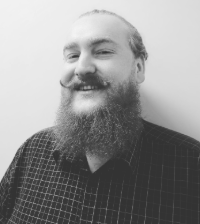
Euan joined as a data scientist while finishing a Bioinformatics PhD where he applied co-expression network methods to investigate the pathobiology of an oncogenic herpesvirus. His interests lie in applying network modelling and biostatistical approaches to multi-omic data-sets in order to disentangle host-microbe interactions, drug mode of action and drug resistance, alongside answering many other biological questions. He is also currently co-developing materials for an R course. Have a look at his profile here.

Jordan recently joined as a data scientist following his PhD at the University of York, where he used spatial multi-omics to map the biomolecular changes associated with post-traumatic knee osteoarthritis. He enjoys the data analysis side of research and learning more about new areas of biology. He is particularly interested in applying spatial omics and integrating multi-omics to drive novel therapeutic insights. Have a look at his profile here.
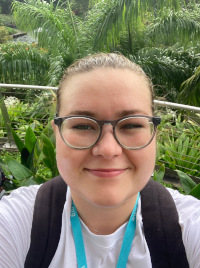
Kirsty joined the CBF as a data scientist following her PhD at the University of Birmingham, where she used computational biology approaches to investigate gene regulation in fern reproductive development. Her research involved developing RNA-seq processing pipelines and performing Weighted Gene Co-expression Network Analysis (WGCNA) to explore plant reproductive genetics.
With a strong background in both wet lab and computational research, Kirsty brings a deep understanding of experimental workflows and the large-scale datasets they generate. She has a keen interest in big data analysis, discovery science, and applying new software and techniques to solve complex biological problems. Kirsty is also passionate about open science, reproducibility, and sharing her knowledge through outreach and training initiatives. You can read Kirsty's profile here.
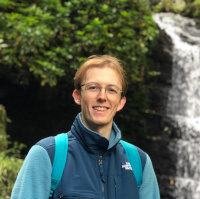
Dan joined the CBF as a data scientist following a period as a bioinformatician at the Centre for Genomic Research. He has an integrated background in mathematics, computer science, and biology. Prior to this, he carried out doctoral research focusing on forecasting and predictive analysis of the human microbiome using machine learning and applied mathematics. He is particularly interested in developing data-driven approaches to uncover insights from biological datasets. Check out his profile here.
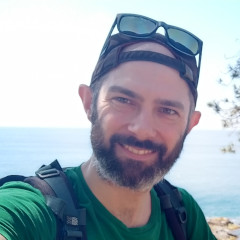
Ewan has a PhD in evolutionary ecology. Postdoctoral positions in Brittany, Liverpool and Barcelona allowed him to pursue his interest in the molecular responses of invertebrates populations to environmental stress, analysing genomic, transcriptomic, proteomic, and epigenomic data and relating it to phenotypic variation. After a year as a bioinformatic trainer for the NERC Environmental Omics Facility (NEOF), he has joined the CBF as part of the LifeArc Kidney Research UK project, which aims to integrate clinical and omic data to improve our understanding of rare kidney diseases in children. You can read Ewan's profile here.
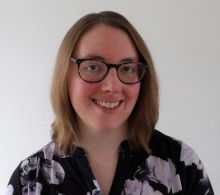
Christina has recently joined the team after working within the University’s Technology, Infrastructure and Environment Directorate. She will be supporting the team in her role as a Project Support Officer, working mainly on the BIOMEDical DAta Science Accelerator (BIOMEDASA) project. As part of this project, she will be focusing on assisting in numerous outreach, reskilling, and training events.
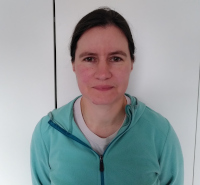
Laura has previously provided administrative and data support to various projects at the International Centre for Circulatory Health, Imperial College London; Clinical Psychology and Developmental Psychiatry, University of Cambridge; and the Clinical Trials Research Unit, University of Leeds. She is returning to research support after spending the last three years as a Marketing Database Coordinator at the University of Bradford.
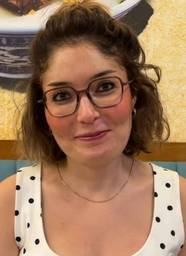
Zeliha holds a PhD in Bioinformatics, where she investigated the role of somatic copy number variations in Alzheimer’s disease and developed a method to denoise low-coverage genomic data. She has a background in evolutionary biology and experience analysing diverse omics datasets, particularly in complex diseases and phenotypes such as aging. Her expertise lies in applying and developing statistical methods to interpret large-scale biological data. She joined the CBF as a data scientist following a postdoctoral position at UCL and has worked on the PULSE-CF project, which aims to understand the causes of exacerbations in people with cystic fibrosis by integrating clinical and omics data. You can read Zeliha's profile here.

Shah is part of the Professor Daniel Rigden's group in the Institute of Systems, Molecular and Integrative Biology where his research focusses on Protein Bioinformatics. Shah is a specialist in the application of diverse bioinformatics tools to proteins of interest to predict the structure and functions of uncharacterised proteins. At the CBF he will be using structural bioinformatics to understand medin generation. More specifically, he will use molecular dynamics analysis to assess how medin cleavage sites become accessible. This will include analyses in the presence or absence of lipid bilayer. Additionally, we will use experimental results from collaborators to identify targets to perform protein bioinformatics and characterize candidate genes that affect medin processing e.g., functional annotation and structural modelling

Kawinnat, (aka Pimmy), has joined the CBF as a part-time data scientist alongside her PhD study under supervision of Prof. Andy Jones. She is currently working on SUMOylation (post translational modification), focusing gene identification, evolution and transcriptomic regulation in plants. Pimmy's work at the CBF includes gene identification in model organisms using bioinformatic approaches and website administration and design.

Arturas joined the CBF as a full-time data scientist after a post-doctoral position building software and analytical pipelines for NMR metabolomics. In his time in the CBF he specialised in health data science, applying machine learning approaches to solve complex problems ranging from biomarker discovery to drugs classifications. Arturas is also a developer of our popular R courses. He is now a senior bioinformatician in Eliptica where he is working on personalised medicine and holds an honorary position with us.

Kim joined the CBF as a full-time data analyst after a post-doctoral position investigating the molecular drivers of metastasis in renal tumours. In his time in the CBF he specialised in applying multi-omics based strategies to issues of human health and diseases and the development of novel approaches to analyse single cell transcriptomics data. Kim is now a senior data scientist in Astra Zeneca and holds an honorary position with us.

Dan worked at the CBF while undertaking a MRC/Versus Arthritis PhD developing statistical and machine learning models for biomarker discovery. Dan is now Head of Bioinformatics at Greywolf Therapeutics and continues a close collaboration with the CBF.

Francesco is a specialist in developing novel computational approaches in systems biology and the application of these techniques to complex biological systems. Projects in Francesco’s research group have ranged from modelling the effect of pollutants in the environment to cancer and ageing. He was very involved in the Systems Medicine efforts in the MRC Centre for Drug Safety Science and in the area of blood malignancies.
Francesco has recently left the university to focus on his consultancy work but remains a great source of advice and inspiration for our work.
Call the department
+44 (0)151 795 5473